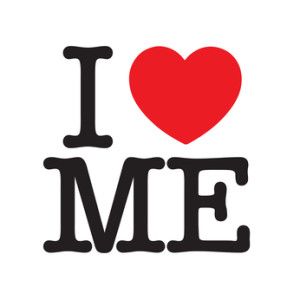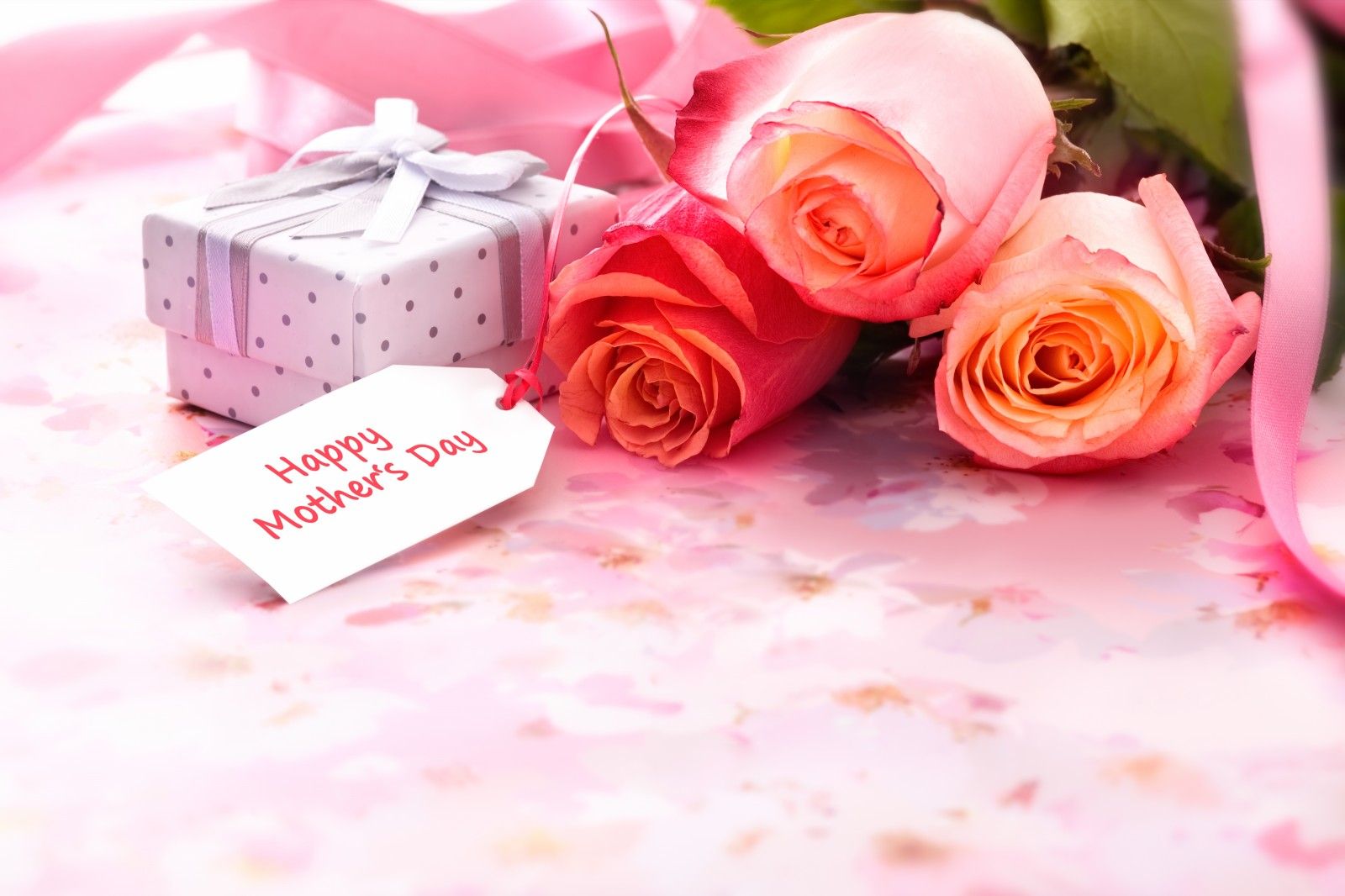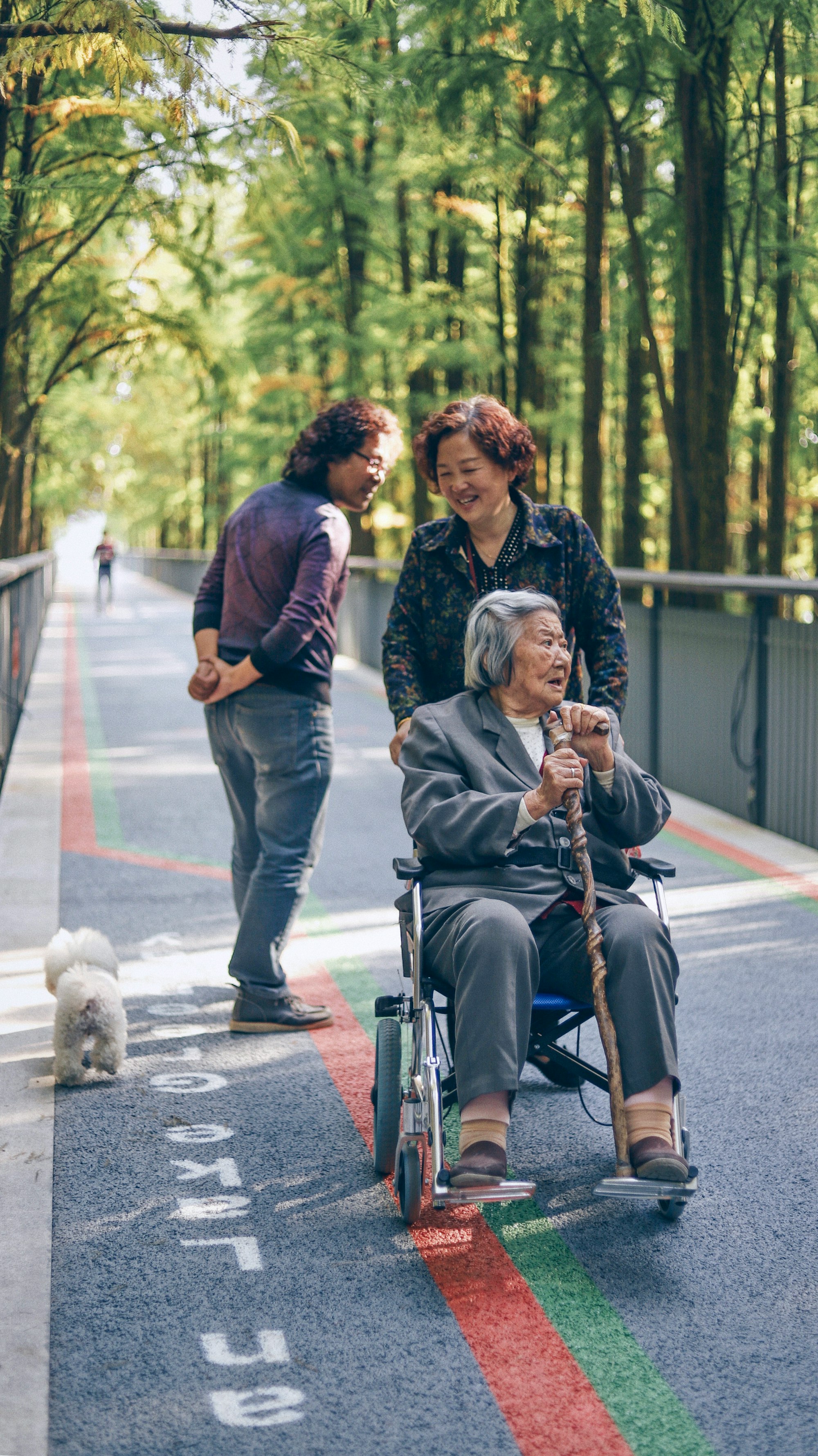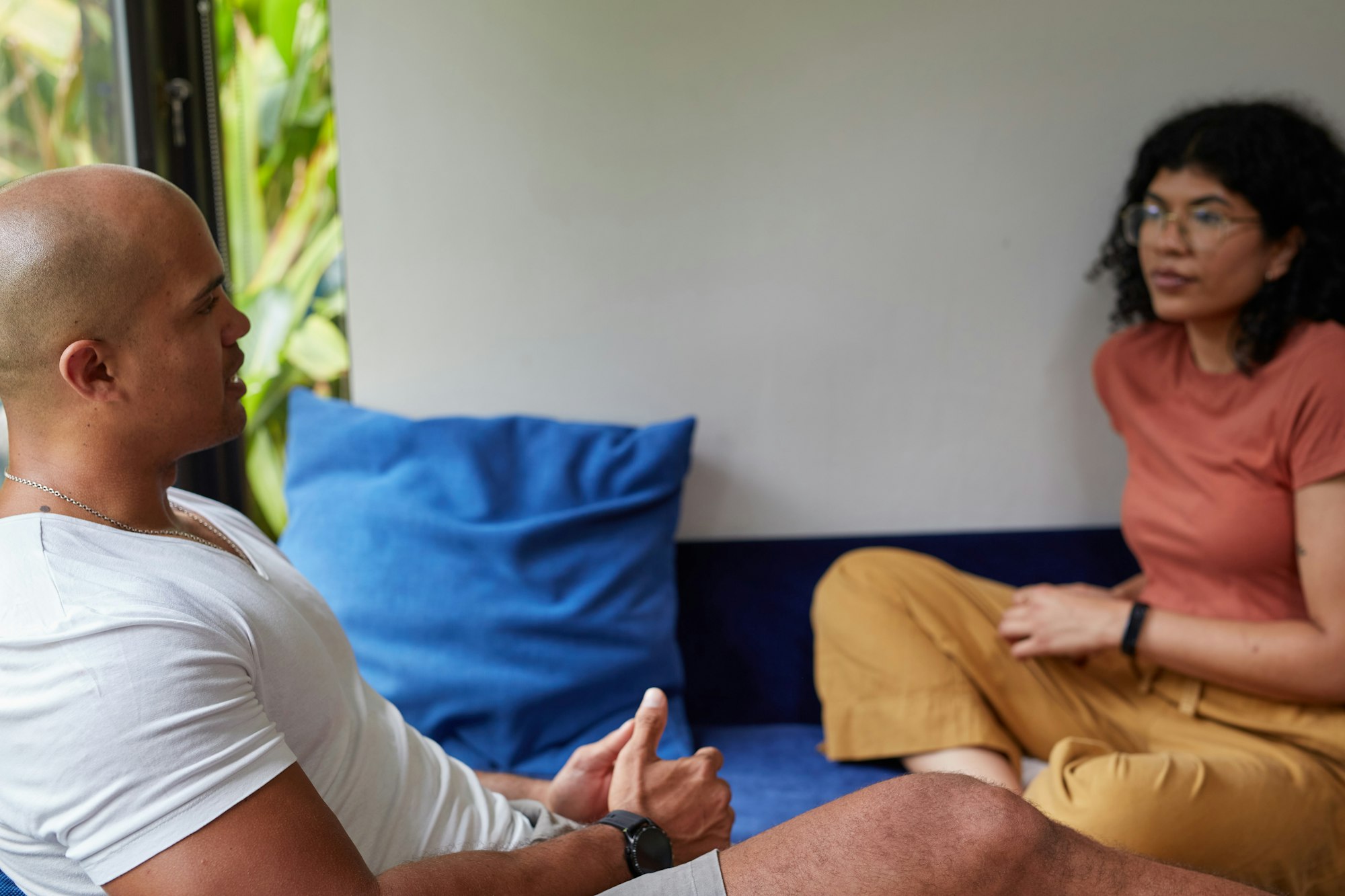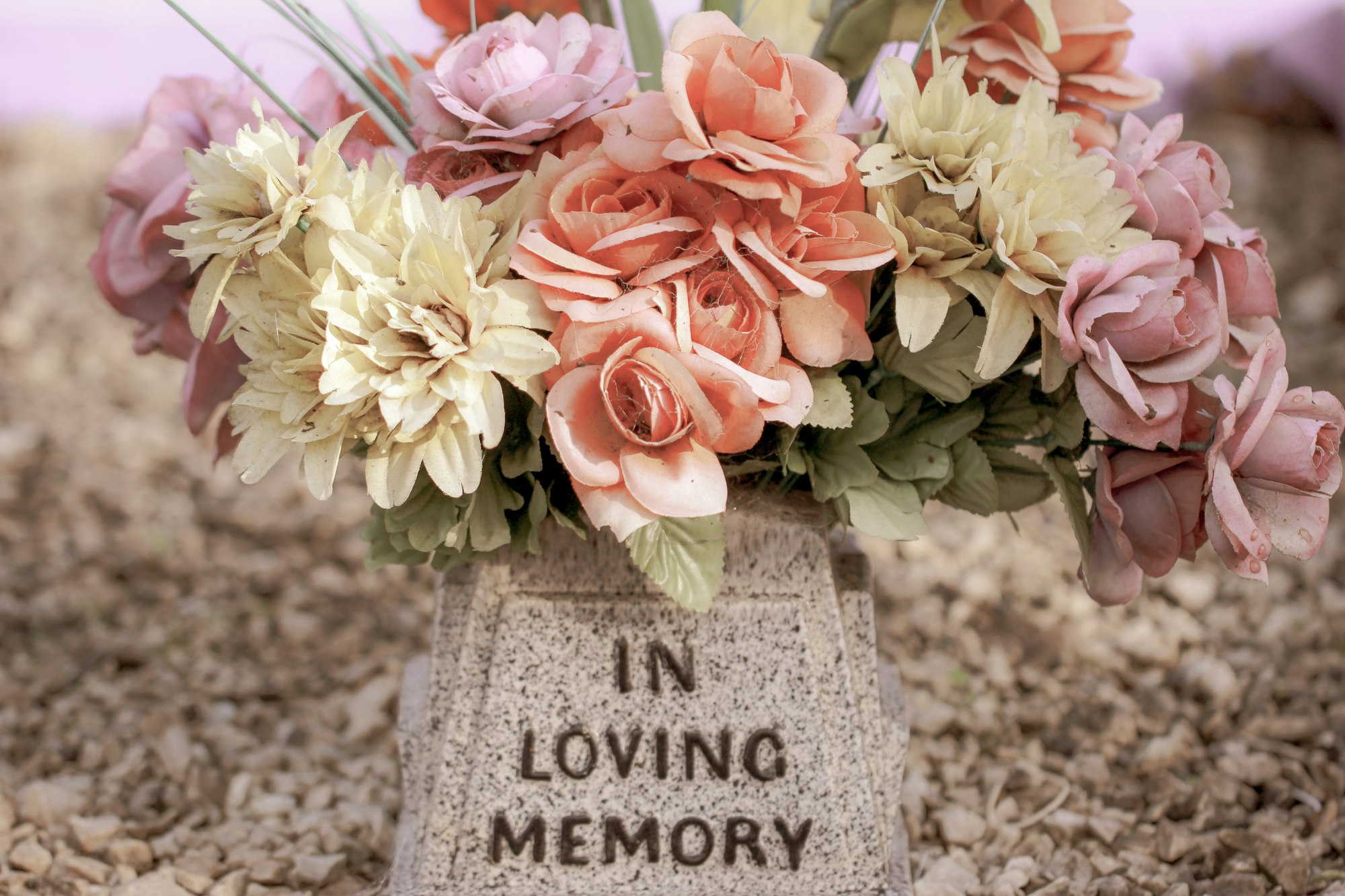Caring for aging parents. A Love Story. Part 1 with Kim Doviak Van Hassel - Episode 14

In this heartfelt conversation, Kim Doviak van Hassell and Diane Carbo share their personal experiences and insights into the challenges of caregiving. They discuss the importance of finding the right caregivers, the emotional toll it takes on both the caregiver and the care recipient, and the financial impact of caregiving. Kim's dedication to her parents and her unwavering commitment to providing them with the best possible care shines through as she recounts her caregiving journey.
Diane Carbo: Hi this is Diane Carbo and I’m with caregiver relief and today I have Kim Doviak van Hassell, a caregiver coach, and a podcast contributor . Before I let Kim take over the story I want her to tell, I wanted you to know that Kim is an only child. When her parents started to decline, she saw this as an opportunity to help her parents stay together. She began her role as a caregiver, to both her parents. At the time she had her own business and she started her caregiving journey long distance.
Diane Carbo: This is a story of family love. Kim took care of her parents as, they took care of each other throughout this entire journey. Kim helped that love story continue until the end. I’m so blessed to have Kim with me today because so many caregivers walk away when they’re done but this is such a beautiful story. Kim, I want you to share your parents’ story and your journey with us. So let’s start. Tell me about your folks.
Kim Doviak van Hassell: Oh, good, they were married 62 years. They were in love from day one to the end of their days. They work very hard at their relationship. My father actually was an alcoholic at one time and he was able to get help with that to the program. He bettered his life at a very young age. Worked at the family unit. Which made it perfect for me as growing up. They were just the best parents and they understood and worked with me on everything I needed to do. What else can I say? \] my father has 54 years of sobriety. And In those 54 years, he worked very hard helping other people with their sobriety. What’s a little that, I had the best upbringing ever.
Diane Carbo: first of all, tell me about your mom.
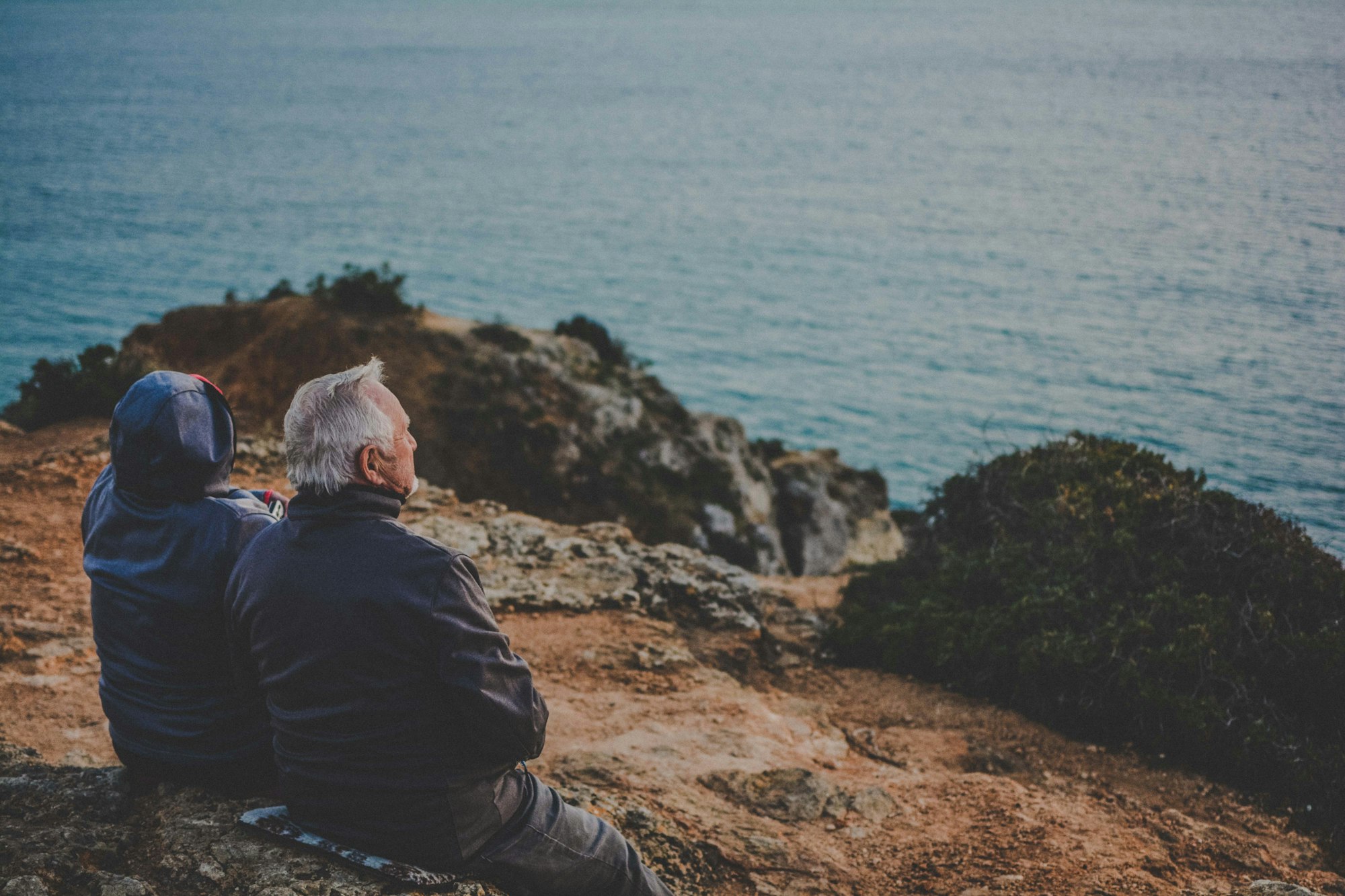
Kim Doviak van Hassell: She was a nurse and she was caring for your dad. Yes, my dad has started having heart disease in his thirties. He ended up having two open heart surgeries, valve replacements. Through all those years, he’s been pretty sick on and off. She being a nurse took great care of him. Made sure he got his pills. Made sure he ate his meals. Always. Took care of his swollen feet. Always watched what he ever did and what he needed. She was there for him.
Diane Carbo: Yeah. She was amazing at the care she provided. You had a situation where you lived like two hours away. Is that about right?
Kim Doviak van Hassell: Yes they actually moved away when I turned 40. I used to complain and say, how am I going to take care of you? You’re so far away. And they used to tell me, move by us. Wasn’t possible. I didn’t want to move. And they wanted to be by the Jersey shore. They wanted to enjoy their last years and loved the ocean. That was their main purpose.
Diane Carbo: They were off on their own. They were taking care of each other and enjoying life. Now, there came a time when you were running your own business. So you were up there two, hours away. You’re running your own business. You have your own life. Mom and dad are down at the shore enjoying their life. With your mom being the little nudge that she was, taking care of your dad, then she became ill.
Kim Doviak van Hassell: yes, she did. Yet even though she was diagnosed with Parkinson’s disease, she still took good care of my dad for many years. Before the Parkinson’s disease progressed. She taught me a lot about caregiving and it just came full circle. I had to do my best to take care of them. I loved my parents. I wanted to do everything I could to make the end of their life comfortable and happy. It became my goal. I started reading. I started listening to any kind of caregiving books. Joined groups and other people who are going through the same thing and starting my learnings early.
Diane Carbo: I think that has got to be the number one biggest tip that I would want any new caregiver to learn. If you really need to get involved early in learning. You may not be there physically to take care of somebody in the beginning. Because caregiving is intermittent and it’s unpredictable . You can prepare yourself and I think that’s one of the things that I was very impressed with is you got into support groups and you were doing them online. You were in disease, specific support groups, like the Parkinson’s group. You went into the senior caregiver group. You were associated with people that had like-minded goals of trying to keep their parents as home for as long as possible.
Kim Doviak van Hassell: That was lifesaving for me. I, if I didn’t have that information from other people, their experiences and what they went through, I don’t know if I would have been able to do as good a job. I would have liked to. You were a big part of that, you helped me. Greatly, try to figure out what’s best for my parents and you were never judgmental. You just said, all right let’s just try this for this a month and then decide. After the month’s over and that works out perfectly where other people were saying, oh, put them in a nursing home or, it’s time, you can’t keep doing this but I did it. Month at a time. Just like you suggested to me and it worked beautifully.
Diane Carbo: I’ll never forget the first time I met you. I come down to your parents’ home. In fact, your dad had a visitor. I’ll never forget this because it was one of his AA friends. They were checking on him. We were having a conversation because you were doing long distance and because your mom was open-minded enough, they knew they needed care in the home. So you had somebody already there helping them intermittently with stuff like housekeeping, taking them to appointments and stuff. When you couldn’t. Which was wonderful but still, they were still active and you were just starting your caregiving journey.
Kim Doviak van Hassell: Yes and actually I did most of all the appointments at first for the first year or so. And then when it started to get more difficult, I did have to hire more help, but the help that we had gotten previously before things even really. Got pretty bad was somebody to just come in three times a week. Help give a bath. They were there for a couple hours and that was huge but at one point, that’s not enough .Anymore .And you need to go on and make more decisions. And that was just the whole journey of decision making was I wanted to make the decision. Now I wanted to admit I wanted everything to be perfect. And I wanted to know exactly what I’m going to do and how I’m going to do it and that’s what I learned from this whole thing. You can’t do that you have to work with your parents. See how they feel,.. See how you feel. See what you could do. The whole formula has to come together and then you could figure out what works.
Diane Carbo: I’ll never forget meeting their caregiver. I go in, I don’t know you guys, and I’m trying to give you the support and guidance that you needed at the time and I remember him saying to you in front of this caregiver, eventually your mom was going to need a hospital bed. I don’t know if you remember that conversation or not, but I remember the first caregiver that you had look at me and say, they’ve always slept together. They can’t have separate beds. They can’t do this, the kids. And I remember saying to her, I’ve been a caregiver for forever and it’s not necessary, but with your mom’s diagnosis, I knew that if you were going to be able to keep her at home for as long as possible, you needed to put things in place. I was just introducing the idea because I knew that, they were a very loving affectionate couple. I did introduce that and eventually I just wanted your mom, your dad, and you to start thinking, planting that seed that yeah it’s going to be easier for your mom in the future to have that hospital bed, even if it’s right up next to your dad’s bed, because of being able to transfer her and do those things.
Kim Doviak van Hassell: That’s exactly what happened at the end of their lives. They had two hospital beds put up next to each other. They managed to stay together and sleep together in the same bed, very ill for a very long time .And on and off they’ve been through hospice. So hospital beds came in and we will be able to put one hospital bed next to the bed and maybe for my mom. And then when they took her off of hospice and thought she was getting better, then my dad would go on it and they would put his hospital next to the bed and at the end they both had two hospital beds next to each other, but they would never, ever sleep apart.
Diane Carbo: I know, and that was so sweet, even just planting that little seed upset the caregiver, I think more than your parents at the time when I suggested it. I was just planting the seed but it was such a touching moment. Now I will tell you the very first time I met you was the first time that your dad had a seizure. We were sitting there with his friend from AA, and I saw that he had a catatonic type seizure. We actually ended up going to the ER . I remember going with you to the ER. Now how long was your caregiving journey
Kim Doviak van Hassell: I actually started probably going once a month to clean their house. For many years when things weren’t so bad. Just to make life easier and as in it didn’t, it took a while before the progression hit and things change,. But I’ve been doing, if you want to include that part, it’s been probably about 15 years. The majority of it, the serious part, it was probably about four years.
Diane Carbo: Yeah. I remember we went to the ER with your dad and I want people to know that I felt so bad for you because you have very bad knees. That day you could barely walk. I was so concerned about yours physical and mental wellbeing. I think that one of the things , that your mom did accept that if she wanted to stay home and if your parents were going to stay together,. They were going to have let outside help come in.
Kim Doviak van Hassell: Yes. At one point I was thinking about nursing home care. Some people were trying to talk me into that. I kept thinking about it and I kept it just wasn’t working in my mind. at least I wasn’t ready for it yet. Like I said before, where you came in and you told me try at home for one month with the caregivers. The caregivers were really difficult to deal . , that’s always going to be the case. You’re going to have difficulty in a nursing home. You’re going to have difficulty with caregivers. It’s just never going to be the way you want. It’s a lot of work to make sure that they’re doing the right thing. I actually eventually got a a home monitored so I could see what was going on and keep an eye on things when I wasn’t there.
Diane Carbo: That’s a really good tip that caregivers need to know too. I do want to let the new caregivers or those considering in-home care that it takes six or seven caregivers before you find one that works with you that meshes with you and your parents needed care often. So you were juggling it. It’s not easy to do it long distance.
Kim Doviak van Hassell: I was part of the team. , one week, one caregiver would come in and then maybe the next week I would be the caregiver. It would give a break. You have to give the caregivers a break. That you’re paying there. They’re gonna burn out. I know that through my own experience. You have to juggle their time and give them time off so that they can relax and come back ready and willing to work. It’s very important to take good care of your caregivers, but then again, you have to be careful that they don’t take advantage of you at the same time.
Diane Carbo: That’s a really good point, Kim both know from our caregiving groups that we belong to and have worked with that people do get taken advantage of . First of all, I think even if you were the best manager in the world, when you’re dealing with family members that are having someone come take care of and providing. Intimate care. They get attached to those people. They trust those individuals. And then there comes a time when they are vulnerable and can be taken advantage of so it’s really difficult. If you had somebody who was unseemly taking care of your parents they might not have listened to you and given them the information. Tips that I’ve always given caregivers is don’t leave a credit card for anybody to use. . Don’t let them go out and spend their own money and then expect you to be reimbursed. There was things like that, that people are too trusting about and it gets them in trouble.
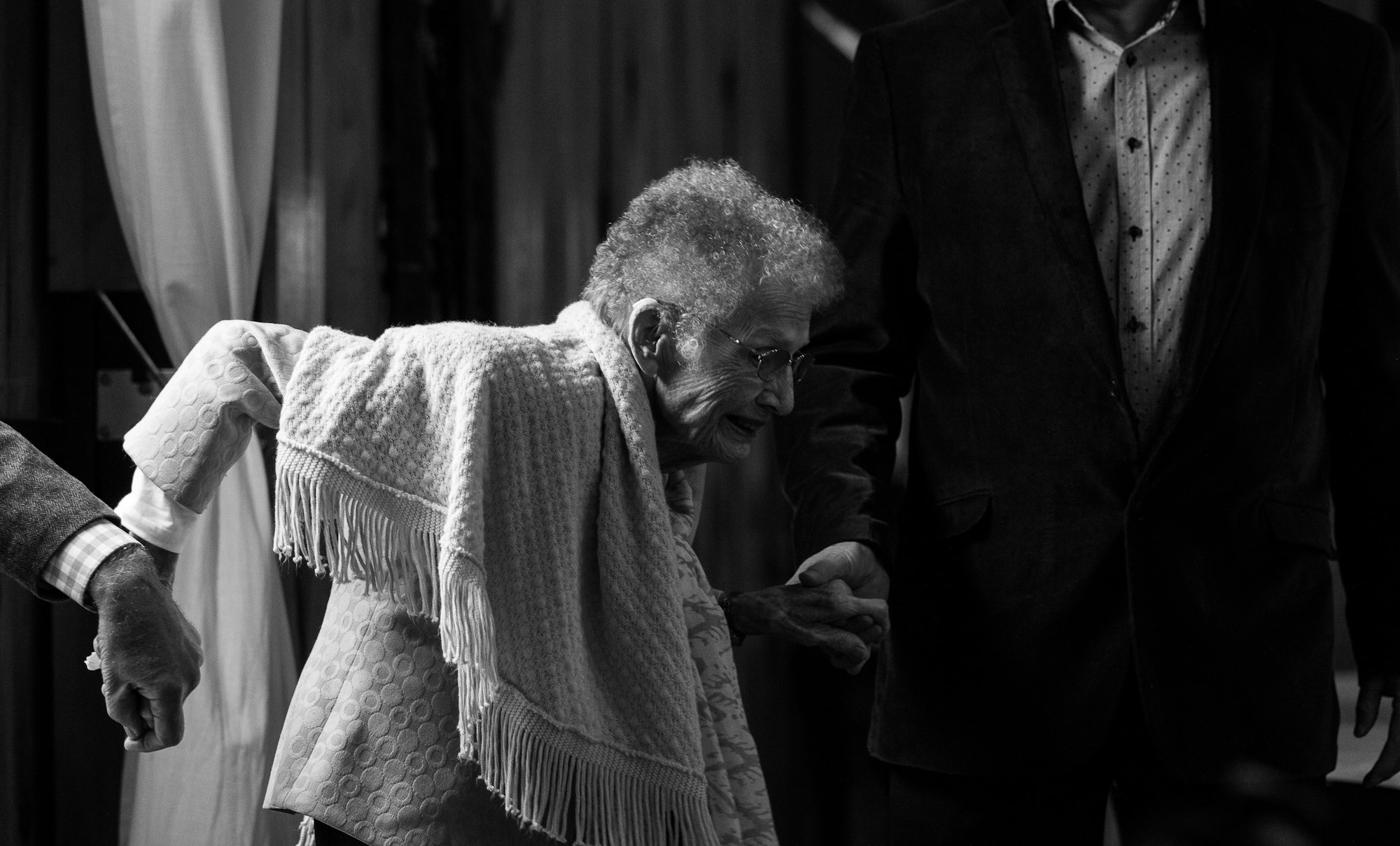
Kim Doviak van Hassell: Absolutely. There’s so many people that have lost so much money. I’ve heard so many stories about people writing checks for themselves, my mom was in love with her caregivers I have to be careful and I had to watch that because they are so intimate and so dependent on the caregivers they become like the most important person in their life. They need them for survival. I had problems with that. But I was there to watch it and take care of it and I was on top of it ] I had to remind my mom that they weren’t, they were working for money. They were not family. They weren’t friends. They were most of the time there because they needed money, but she didn’t really see it that way because they were her lifeline. She was so dependent on them.
Diane Carbo: That’s a good point to make because that’s how we get our family members scammed or taken advantage of. I tell people, please lock up your valuables. Keep things in a separate room of anything that’s important that you want, that may be able to walk .Off with them when they leave. I think that with today’s society, having the monitors, so you can see what’s going on in the house, it’s really important. I actually have had situations where the caregivers were bringing their laundry and the family’s laundry loads of it and doing it while they were at home taking care of another family member and not doing the family’s laundry, not doing the laundry that they were supposed to do, but their own family’s laundry and then taking it home.
Kim Doviak van Hassell: Yeah, the food. They take home food. They you buy food for them to eat. Yes, of course. But you don’t buy food for their groceries for the rest of the week. They help themselves. Some of them help themselves to the food and it could be expensive. I have to say, in the long run, it was a lot cheaper than putting in a nursing home. Yet it was much, they were much happier, much better off staying home with caregivers, even with all the problems and issues that I had. It’s never going to be seen with, like you said, there’s always going to be something and I want to reiterate how important that people need to know that. Because even in nursing homes, there’s always going to be a problem I’d rather have for me and maybe not for everybody else, but for me, I’d rather dealt with the problems at home with the caregivers, then problems in the nursing home. Can you help me with that? And I don’t regret one minute of my decisions. And you were my main source on helping me realize what to do. It’s a very confusing time. It’s very upsetting. You don’t know what direction to go in. You don’t know what to choose. You want to do the best.
Diane Carbo: You really do. People have a hard time maneuvering the medical delivery system. You were blessed that your mom and dad were willing to work with you. again, I think it has to do with their background of AA and talking through things, working through things, they were open. Yeah, they were very open. They walk their talk.
Kim Doviak van Hassell: Yes, they did and they were definitely a role model for people. Relationships, lifetime relationships.
Diane Carbo: . I have to share with the listeners out there is that your parents were very loving. They were characters as well. I helped you out a couple of times. , Kim knows this story, but I helped her when she needed a break. Over the holidays a lot after my son died, I just had. My other son was in nursing school. So I had time and I was living in New Jersey at the time. So I came down to Kim’s house for covering over some of the holidays and your mom always challenged me. She was a character. I would put her to bed and get her all ready. You had a bell system so she could ring the bell. Oh my goodness. She did have Parkinson’s and that’s the end. She did have problems with some dementia, but she cracked me up because she knew what she was doing when she did it, but she would ring that bell. I would be in the living room and she’d be in bed. Your dad and her would be in bed and I’d be in the living room, calming down, chilling out, and I’m hear tinkle, tinkle, . What do you need? What can I do? What can I get you anything? She goes, no, I just want to make sure. Oh my gosh. She was looking at me with that little smile of hers, a little smile, and she just cracked me up. I also have a story about your dad that I tell. I was there and I felt like I was being torn in two places because your mom was in bed with the bell and your dad decided he wanted to cook.
Diane Carbo: You had all these cookbooks in the garage, which was right down the hall from where he was. He toddles down there with his Walker and he wants to look at his cookbook. So I’m between the two patients at the time. Your mom’s in her room in bed. It was like, she wasn’t ready to get up in the morning, but he wanted to plan dinner. He was going to plan dinner. He must have been out there and I couldn’t believe how he stood so long. He had his but he took forever to find the right recipe. Oh Lord have mercy. I was afraid he was going to fall. I have a bad back from years of nursing and I can’t stand that long. So I was like having anxiety, like going back and forth. But the funny part is when he finally decided the recipe he wanted we came in and luckily you had almost all the ingredients. I got a kick out of your dad because he knew he didn’t want to walk with the Walker I was always a nudge. Come on, you gotta take the Walker and he would look at me and he would give me a scowl. He never say anything mean or nasty. He would just be quiet. He was quiet kind of . , I guess at first with me, I wish he would cook. And of course I’m standing there cause I’m like, are you going to burn stuff or whatever?
Diane Carbo: So he was a patient man. I would turn down the heat on, I think he was cooking something with cabbage and poli sausages. And he was cooking up the sausages and he had them all chopped up. I turned the heat down cause I said, you’re going to burn it. He would look at me and when I walked away, nope, he just mild and appease me like yeah. Okay. Lady, I’ll let you think you’re winning. Yeah.
Kim Doviak van Hassell: That sounds like him. He loves to cook. That was that was a hobby . Cookbooks were like gold to him. So you’re explaining it perfectly. Is that how he is with his cookbooks?
Diane Carbo: what I loved is you always made it possible for your parents to do as much as they could for themselves always,. If he wanted to cook you okay with that . You made it clear to everybody that was caring for him, monitor him, watch him. I remember you, taking them to go shopping. You had special places that you had to pick up stuff. Your dad early on always had to go with you.
Kim Doviak van Hassell: And he loved shopping. He loves food shopping. He loves food. He loves anything with food. He loved hoarding food. He just liked cooking it. , he didn’t even , have to eat it. He just loved watching the cooking shows anything to do with recipes. I have that handwritten cookbook that he has since he was A teenager that he made. It’s all handwritten from over the years of what recipes he’s liked and that’s a real nice the heirlooms hang on to.
Diane Carbo: Absolutely. In fact, the meals that he made that day, I enjoyed it. He ate very little and your mom at the time was on a special thickened or pureed . We blenderized it up for her . She was happy as could be. She didn’t eat a lot, but she did eat some. He was just happy with that. I want you to share the story of early on and as your parents declined, you continue to take them on outings. You went to the beach with ’em. Tell me about that it was hard because wheelchair beaches are not easy.
Kim Doviak van Hassell: Sometimes I was able to bring them together, but later on, I couldn’t bring either of them. I had to bring them separately. Because it was just too much. I needed somebody to stay home with one while I took the other. I can remember taking my dad one time and he was so excited, he said, I got goosebumps. I can’t wait to get there. I’m so excited. I want to see the beach. My mom, when I got her to the beach later on in her disease, she was totally wheelchair bound. So the beach actually supplied us with a wheelchair with big rubber tires. I have pictures of her. I was able to. Get her on the beach and Wheel her to the water so she can put her feet in the water, which is what she wanted to do. And she cried. She was so happy to be at the beach. That was her home. She loved the beach that they want me to spread their ashes on the beach. I’m not sure I’m not ready to do that yet, but that was their soul.
Diane Carbo: It is mine too. You know how I feel about the beach? Cause I’m always posting it gives me energy, but I think one of the things that many caregivers forget is throughout the disease process, you really have to try to work at getting your family members out, allowing them to enjoy life to the fullest for as long as possible.
Kim Doviak van Hassell: Absolutely not easy to do, but important. And you know what, when you look back, you just say, I’m so glad I did.
Diane Carbo: Exactly. And what it really has given you the ability to bond at a different level with your parents that you didn’t have even before.
Kim Doviak van Hassell: That’s huge in itself. That’s so important to me that when I started taking care of my parents, again, it was like, Will become this coming, a family, a close family. Like we were when it was, I always young, but it’s the opposite. But it was still being a close family unit that I used to have. No that’s no, I have it when, now that they’re older and I’m taking care of them. And that meant so much for all of us. I think we all enjoy it. Becoming a close family unit again, at the end of their life.
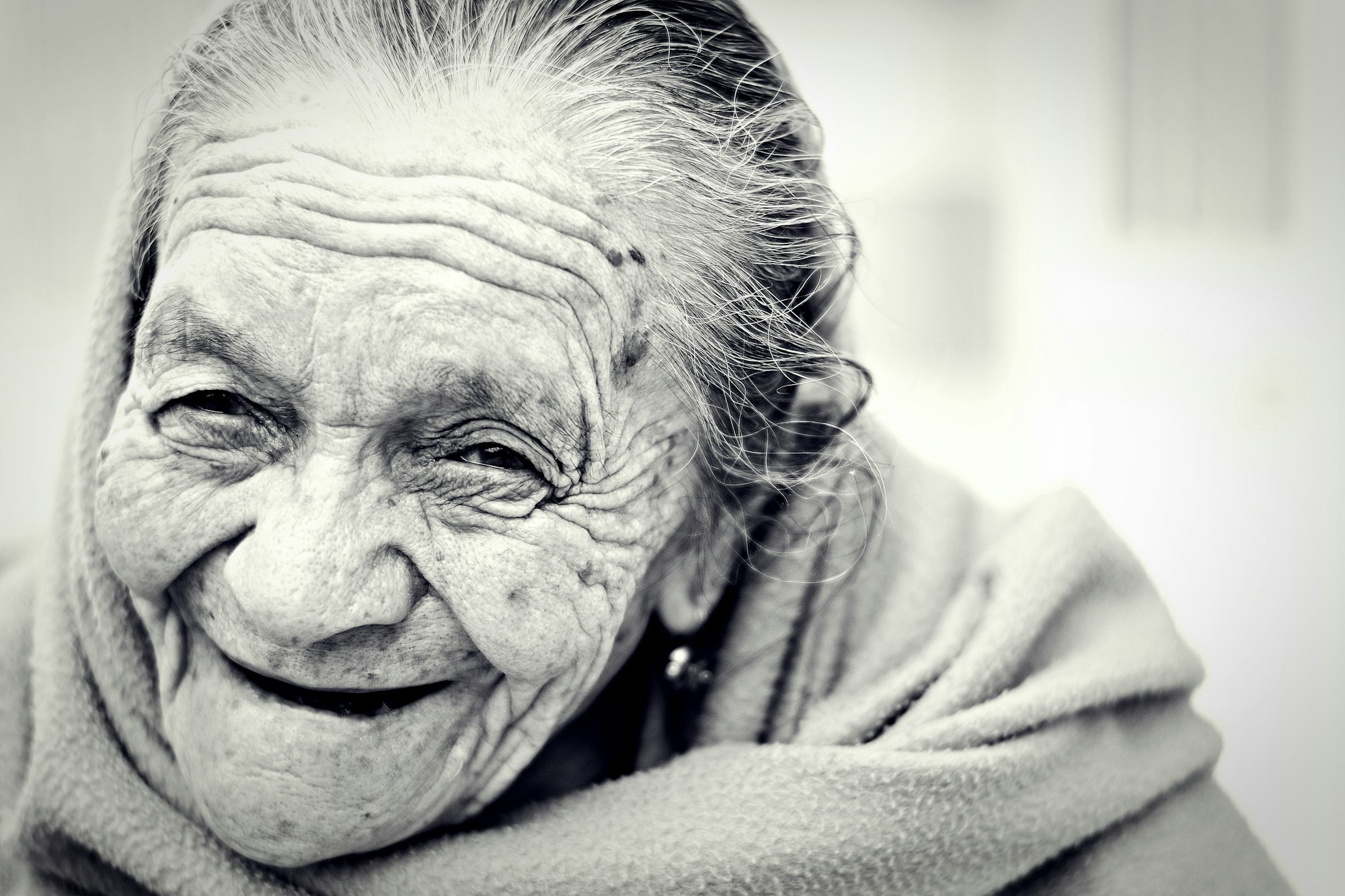
Diane Carbo: It was very touching. I know I enjoyed your parents when I spent time with them. I always worried about you and I do with all my caregivers, because you struggle so much with your own physical, mental and emotional wellbeing. I know that your business suffered. You were able to keep it for a while. Like you said, you’ve been doing it for 15 years out, going back and forth with your folks, but the last four, what happened? Let’s talk about what changed and how it impacted your life with your business?
Kim Doviak van Hassell: I had days. Different days were different weeks that I was going at different times. So I always had something set up in my mind. I would do three, four days a week early on the try to save money and help them out and then the other days I’d run home and run out and do all my business that I had to do. I was in, in vending reselling products to local convenience stores I squeezed the goal and, during a time like this in your life, you have a drive to just keep going,. No matter what., it’s probably one of the most important drives other than when you have children taking care of them, you just, you gotta do, you have to do it. You have a drive to take care of your family and nothing else matters. At that point, if my business got impacted that’s okay. It was all right. I was able to make it by financially without as much business as I was doing and help them, they did have quite a bit of money saved for their lifetime.
Kim Doviak van Hassell: I have to say, I spent probably like $150,000 in caregiving. That’s nothing compared to what I would have to pay in nursing home.
Diane Carbo: Oh, absolutely. For two people. Absolutely.
Kim Doviak van Hassell: Yep. So it was worth every penny of, and some of their money helped me. Hey, a few of my bills and get by and pay for some of the guests. What was it mostly to caregiving.
Diane Carbo: I was going to say most caregivers struggle with working and caregiving.
Diane Carbo: there comes a time when many have to decide do they place their family member in a home. Do they remain at home or do they bring them to their home and give up their jobs? It’s a struggle. It’s a big struggle for many caregivers. I can tell you that many caregivers that do leave their jobs lose income for the rest of their lives that they may never be able to make up. And that’s a big sacrifice they make.
Kim Doviak van Hassell: Absolutely. That’s really huge and the thing that they have now is they’re actually paying caregivers to take care of their family. The government will do that as compared to when I was doing it, nobody really wanted to help. I tried to get help from my father was in world war two and they have Help through the veterans programs and I tried to get help through there, but that wasn’t too easy to do.
Diane Carbo: Yeah, the aid and attendance program, it’s so frustrating and it’s such a sad commentary on our government and the way they treat our vets, because the benefits are there and it can be so helpful. Your parents obviously qualified, but they put you through such agony and pain to qualify for these benefits I think it takes 18 months to two years for them to even get approval.
Kim Doviak van Hassell: A hundred percent. There was somebody that was trying to buy my business where I could have hire an advocate to get it for me quicker. I don’t know if that’s a good thing or not, but I didn’t do that and sometimes I’m not sure I probably should have, but my dad died before they even were able to give him what he needed for, for the financial care that he could have used for the program. Two years it’s like they almost wait for them to die before they happen.
Diane Carbo: . It’s exactly what so many other people have said to me is that it’s a bureaucratic system. And anytime we have to we think we need to depend on the government for anything we’re in trouble because they will delay until you die . I think that is very sad because you, once you’ve applied, you should be able to return in those the receipts and the bills for the care that you provided and you should be able to get reimbursed, but that isn’t even an option.
Kim Doviak van Hassell: Yeah. They gave me such a hard time and I would constantly call them and find them whereas if I had gotten that care and that help things would have been a little bit different. Maybe I could have spent more time taking care of them. It was just, there’s just so many things that could have been so beneficial from that program that I have been a big help for me to be able to, for my own emotional health and physical. How to get that kind of help?
Diane Carbo: One of the things that I do really promote strongly for family caregivers right now is to get a family caregiver contract in place. Your parents had assets. You could have gotten. It wasn’t as known then as it is now. It’s definitely really an important option, especially if you have un-involved siblings. You know how that goes . They don’t want to do anything until somebody dies. Then they’re like vultures picking on bones. They want to come into the house, take away everything that they could possibly take and go on from there.
Kim Doviak van Hassell: In the caregiver groups a lot.
Diane Carbo: Yes, a lot. I think a family caregiving contract, where it gives you the option, not only to get paid, but you’re paid towards your social security as a 10 99. It helps spend down the assets. So that when they’re ready to qualify for Medicaid you don’t have to pay it back in order to get them to qualify for Medicaid. I also think it’s important that there’s an option , even though it’s a family member, that you put in your vacation time, you put in for things so that your parents know, and that you, as a family caregiver note, you’re going to have respite care. You’re going to pay from their assets, from their money, their funds care in the home, or to go to a nursing home for a week or two weeks so that you can get a break. And that’s really important as well.
Kim Doviak van Hassell: It’s really important.
Diane Carbo: The day that your moms fell is the day everything about your caregiving journey changed? We’re going to talk about that on our next conversation, because you have shared so many important, valuable tips with us today, and I’m so blessed to have you.
Diane Carbo: I always end my podcast telling my caregivers. Remember you are the most important part of the caregiving equation without you. It all falls apart. So be gentle with yourself. Practice self care every day, because you are worth it. Kim. I’m so blessed to have you with me today, and I want to thank you and I look forward to talking more about your parents because yours truly is a family love story I want to talk more about how your parents. Help take care of each other as well as you helping them. Thank you for your time and until next time I love you, Kim.
Kim Doviak van Hassell: Thank you. I love you too. Thank you for sharing our story.
Diane Carbo: All right. Talk to you soon.
Conclusion:
Kim's story is a testament to the love and sacrifice that family caregivers often make to ensure the well-being of their loved ones. Her commitment to maintaining her parents' quality of life, even as their needs grew, serves as an inspiration to all caregivers. As Diane reminds us, caregivers are the unsung heroes in this challenging role, and practicing self-care is crucial. Kim and Diane's conversation serves as a source of support and insight for those navigating the complex and emotionally taxing world of caregiving.
10 Tips for Dealing With Difficult Aging Parents
Our Resources section can help you find the information and tools that you need. We have courses, videos, checklists, guidebooks, cheat sheets, how-to guides and more.
You can get started by clicking on the link below. We know that taking care of a loved one is hard work, but with our help you can get the support that you need.
Click here to go to Resources Section now!
